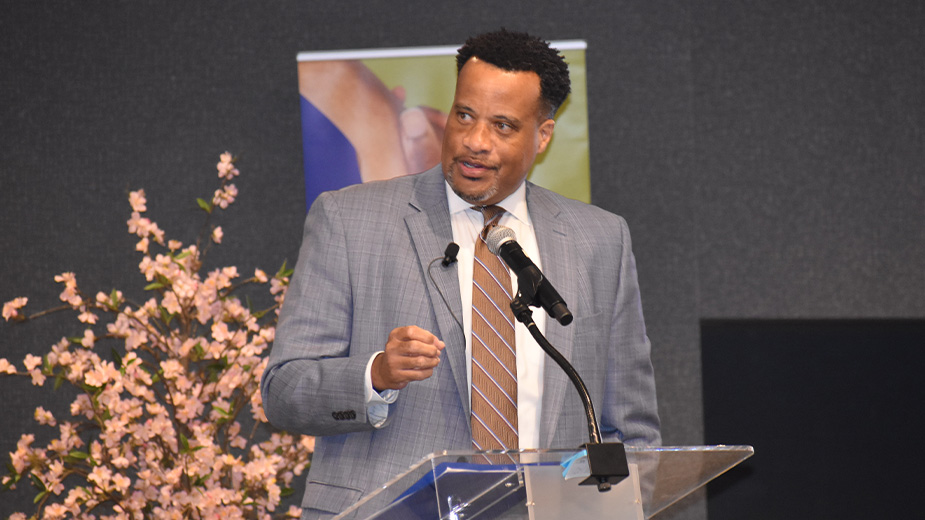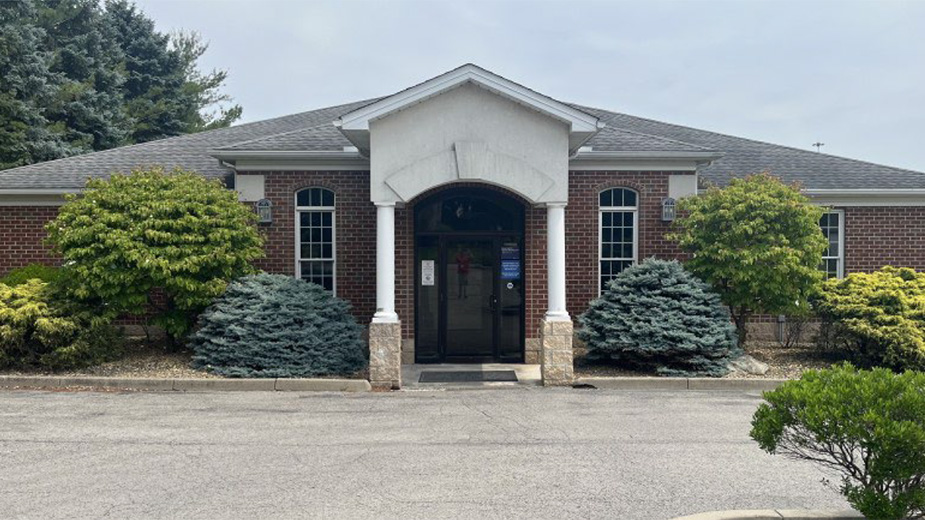Williams Addresses Racism’s Impact on Mental Health
NILES, Ohio – Jay Williams’ achievements haven’t protected him from the effects of institutional racism.
Williams, who stepped down as Youngstown mayor in 2011 to serve in the administration of then-President Barack Obama and now is president and CEO of the Hartford Foundation for Public Giving in Connecticut, recounted Thursday morning how he and his wife recently sought to refinance their house, but the appraisal came back far lower than other nearby houses.
The former banker and bank regulator went through the documents to find that the houses being used for comparison were in ZIP codes that were up to 5 miles apart, and looked at recent sale prices for houses that were just a block away. When he began inquiring about the appraisal, it rose by nearly $200,000.
“Not because anything changed, other than the fact that I asked a few key questions,” he said. “But that is a story that has happened far too often and still happens today.”
Williams was the first speaker at the Unmute the Uncomfortable Conference held at the Eastwood Event Centre on Thursday morning. The conference was presented by Coleman Health Services, a statewide organization providing mental health and addiction services, in partnership with the Trumbull County Mental Health and Recovery Board.
“As we serve our communities, it’s important for us to recognize that racial inequities exists, as well as the stigma that exists around seeking treatment for both mental health and addiction services, and why it’s important for us to recognize it, because the only way to work towards change is to recognize that these happen in our communities and in our places of employment,” Hattie Tracy, Coleman CEO, said.
“If we want to create change, we have to create a safe space for people to feel comfortable telling their stories. We also need to be willing to educate an advocate for that change,” not only in the community but within the Coleman organization.
“We know that people of color don’t seek mental health treatment the same as white people. They don’t seek addiction treatment the same as white people,” said April Caraway, executive director of the Trumbull County Mental Health and Recovery Board. “So our job is to figure out why is that, and how can we engage them.”
As part of its broader mission to use philanthropy to create vibrant communities, the Hartford Foundation is “working on dismantling structural racism and increasing social and economic mobility in communities of color,” Williams said. There is a “strong correlation” among community well-being, community and economic development and the mental health challenges many people face.
“Talking about mental health is uncomfortable. Talking about racial equity is uncomfortable,” he acknowledged. “But what’s more uncomfortable is remaining muted, which is worse.” That creates a “toxic environment” that, left unaddressed, manifests itself to the detriment of the broader community.
Williams shared information from a study addressing the stigma of seeking mental health counseling within the Black community that traced the issue back to slavery, when enslaved people were not considered to be “intellectually sophisticated enough to develop a mental illness,” so any disorders were dismissed as the afflicted individuals being tired or stressed out. Further distrust stemmed from experiments performed on Blacks.
“It began to feed this notion that seeking treatment in a Black community is seen as something that runs counter to being strong,” he said.
Mental health issues also were misdiagnosed as behavioral issues among Blacks, he said. Behavior that would be seen in the broader community as a mental health concern was seen as criminal or problematic within the communities of color, as with the crack epidemic of the 1980s and 1990s.
“When crack was ravaging through communities of color as the ’80s and ’90s, it was seen as a crime problem,” prompting cries for harsher and longer sentences, and more police, he said. The opioid epidemic that has affected suburban communities for decades is viewed as a public health issue, with greater emphasis on diversion programs, with calls for empathy and compassion.
“And I’m not denying that we need empathy, compassion and treatment. … But we needed the same thing when their epidemic was ravaging communities of color,” he said.
“I’m not here to accuse,” he added. “It’s understanding and acknowledging that these are very real facts and trends that exist at their core, get to the issues of mental health.”
Williams pointed to several economic indicators that contribute to mental health stresses for communities of color, conditions he assured were similar in the Hartford area to Youngstown. The difference in his house’s appraisal represented $200,000 in potential wealth that he and his wife would have to pass along to their son, Ethan, someday or to invest in their community, he pointed out.
According to U.S. Census data, the median net worth of Black households in 2019 was 15% of that of whites, a condition that has worsened since the COVID-19 pandemic.
Williams also shared that in the Greater Hartford area, his son has less of a chance to move up the economic ladder – or even maintain the standard of his parents’ economic status – than a white child from a less economically advantaged family.
Williams said there are several similarities between the Greater Hartford region and the Mahoning Valley, “both in terms of the challenges that exist in those areas and both in terms of the opportunity.” The former mayor reported he checks Youngstown news sites like those of The Business Journal and The Vindicator on a daily basis and visits his hometown a couple of times each year.
“I’m excited about many of the things that I see, some of the development, and I’m still frustrated about some of the barriers that exist, the lack of progress,” he said.
Youngstown Municipal Court Judge Carla Baldwin, who served as moderator of the daylong program, said in her introduction of Williams that she already asked “what everybody wanted to ask” – if he was coming back to Youngstown to serve as mayor again.
“He’s not coming back in that capacity. But he will be around from time to time,” she said.
Pictured at top: Former Youngstown Mayor Jay Williams speaks at the Unmute the Uncomfortable Conference on Thursday.
Copyright 2024 The Business Journal, Youngstown, Ohio.



